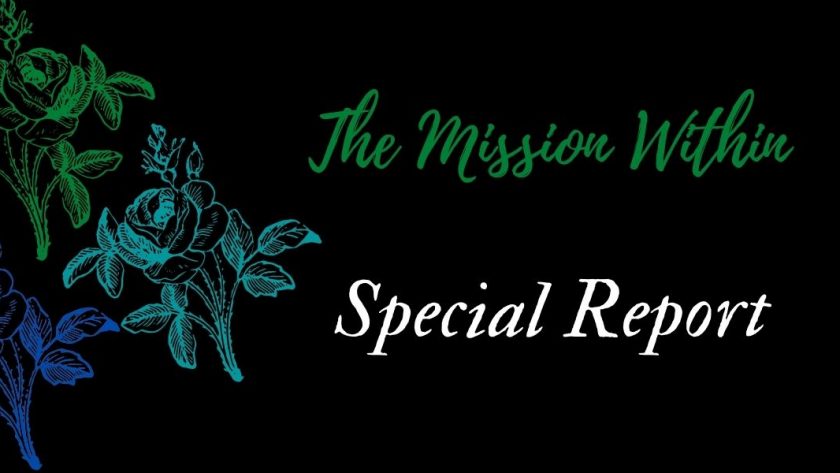As you readers may or may not have heard, today is Holocaust Remembrance Day 2021, and as a blogger, I believe it’s my responsibility, both to you and to myself, to talk about the stuff that matters. This is one of them, and I’m going to make this a special report.
This time in 1945, Allied forces (specifically the Soviet army) liberated the Auschwitz complex, which comprised of the main camp, Birkenau, and Monowitz, along with several sub-camps. While this chapter of their lives ended, as well as in our collective history, it was only the beginning for those who lived through it and survived. Not just with the Auschwitz complex, but also the other camps in existence throughout Germany and the Nazi-occupied countries. Most of the perpetrators still living were held accountable for their misdeeds and their abuses in military tribunals and international courts. Others skipped town and hid out in countries with rogue governments sympathetic to their causes. Some even died fugitives, without ever being held accountable for their actions in life.
The Auschwitz complex was built in 1940, and located in Poland. For five years, those responsible for running the camps abused and tortured the people held captive there. By the time Allied forces got to the camp complex, 1.1 million people had been murdered. Many people lost family members, and those that survived ended up with physical and emotional scars from what they’d been through. They lived (or are living) with these scars for the rest of their lives.
The Holocaust Museum posted this interesting article that talked about how Holocaust analogies reduce a state-condoned mass murder spree rooted in extremist worldviews and heinous prejudices to a one-dimensional silencing tactic. The article goes on to talk about how there are special-interest groups that compare certain parts of the food industry to the Holocaust, how there are people or groups in politics that call their opponents out of their names using things associated with the Third Reich.
Regardless of where you may have seen it coming from, whether it’s an ideology or a political group, the common theme is that this is an incredibly effective silencing tactic.
The article also talks about how the Holocaust, or the Shoah, isn’t just super-ancient history that we only read about in textbooks. For a lot of people, it’s a part of their life story, and an immediate family history, so it hits very close to home for them. On this note, the article says that using analogies about the Holocaust as a silencing tactic does these survivors and their family members a huge disservice by trivializing their lived experiences.
Nobody deserves to have their lived experience trivialized, regardless of what happened to them. While there may be elements from what happened during the 12 years of the Third Reich’s existence in various recent events, in the way of beliefs and worldviews toward various groups of people, they’re different from what happened back then like the article says. The Holocaust was mass murder condoned at the state level, and this is why we owe it to ourselves and the survivors to learn as much as we can (from reputable sources!) about these parts of history.
We also owe it to ourselves and the survivors to learn about the climates, worldviews, and the choices that culminated in this tragedy, again from reputable sources. As a history buff, this is right up my alley. I recently went down the rabbit hole of the Nuremberg trials, starting with the International Military Tribunal. I will say this much, it’s seriously horrifying to see the paths these people took that led to the mass murder and human-rights abuses of millions, and what led them to the choices they made.
This way, we’re shifting away from the trend of weaponizing genocides to further some political statement or belief while shutting down opposing views, in favor of honest discussions, and seeing questionable or otherwise outrageous viewpoints for what they are on their own.
At the same time, we’re also learning the signs before we ever get to a point of extremism within federal agencies the way the perpetrators of the Holocaust did.
Today, #WeRemember. Let’s do right by the survivors and their families, and also the memory of those who didn’t survive. I’m a firm believer that when you speak someone’s name, they’re not truly gone, so let’s speak their names. On the Yad Vashem website, there’s the IRememember wall. Just key in your name, and you’ll either get the choice of picking someone out, or having the computer choose for you. I chose the latter, and I got paired up with Asher Yeshayahu Herskovits. He was born in 1927 in former Sighet, now Sighetu Marmatiei, in Romania. According to the record in the Shoah database, he didn’t survive.
Over to you, readers. Who’d you choose to remember today? If you didn’t choose someone, what name came up for you to remember? Drop ’em in the comments below, and let’s speak their names. These were people like us, with hopes and dreams, and their lives ended in the worst way imaginable.
In loving memory of Asher Yeshayahu Herskovits, 1927-c.1945.


